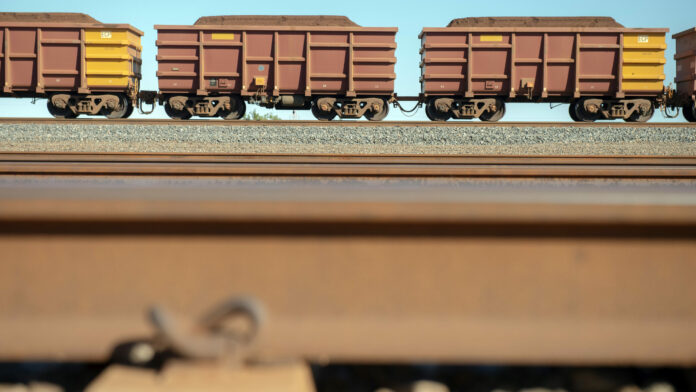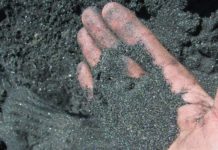
IRON ore sales in the third quarter fell 12% year-on-year to 8.9 million tons (Mt), said Kumba Iron Ore, the Anglo American-owned company.
This was owing to “multiple equipment breakdowns” at the Transnet-managed Saldanha Port in South Africa’s Western Cape. Adverse weather contributed to Transnet’s problems.
As a result, Kumba reported a near doubling in total stocks of iron ore year-on-year at some nine million tons (2022: 4.6Mt). Stocks at the close of the previous (second) quarter totalled 7.9Mt. Of the third quarter stock build of some 1.8Mt was at Saldanha Port – an improvement over 0.6Mt in the second quarter – while on-mine stocks were unchanged quarter-on-quarter at 7.2Mt.
Mpumi Zikalala, CEO of Kumba said the group had maintained full year sales guidance of 36 to 38Mt adding the rider this was “subject to logistics constraints”.
According to a report by RMB Morgan Stanley, Kumba would have to sell between 8.2Mt and 10.2Mt to meet full year guidance.
In a promising development, Transnet reopened its iron ore rail channel and port on schedule following its annual maintenance shut. There had also been a reduction in incidents of vandalism and theft on the iron ore line in the third quarter, said Kumba.
Total iron ore production was 9.7Mt in the quarter, a 4% increase over the second quarter and in line with Transnet’s logistics performance, said Kumba.
There was also a slight improvement in iron ore prices in the quarter with the average year-to-date realised export iron ore price (FOB) coming in at $110 wet metric ton, 10% higher than the average benchmark price of $100/wmt.
“Iron ore prices strengthened marginally in Q3 2023 following signs of China’s economy stabilising, underpinned by government stimulus. Low levels of iron ore inventory, reduced domestic iron ore supply and steel scrap usage in China provided further price support,” said Kumba.
Transnet is currently in the throes of a turnaround plan which involves a rash of senior executive departures including the CEO Portia Derby, the CFO and the head of Transnet Freight Rail, Siza Mzimela. On Monday, it was reported that head of TFR’s export coal, Ali Motala was due to leave the organisation.
Government is also working through the detail of new ‘roadmap’ which could involve greater cooperation with the private sector, including the possibility of mining companies paying for capital projects in return for lower tariffs.
In July, Anglo American CEO Duncan Wanblad would be “reconfigured in the short-term” to account for export bottlenecks. “The situation is not great for Kumba,” he said.
“We have been working extremely hard with Transnet and government to unlock the bottlenecks holding back the industry on that corridor. But it doesn’t feel like anything is going to change anytime soon.
“The consequence of that is Kumba is producing more than it can ship as it can’t get material down the rail. So we have to reconfigure the business,” said Wanblad.
Kumba announced earlier this month it had cut R2bn in capital expenditure for the remainder of 2023, some of which was on Kapstevel South, an extension of its Kolomela mine as production couldn’t be realised in saleable tons in the short term.










